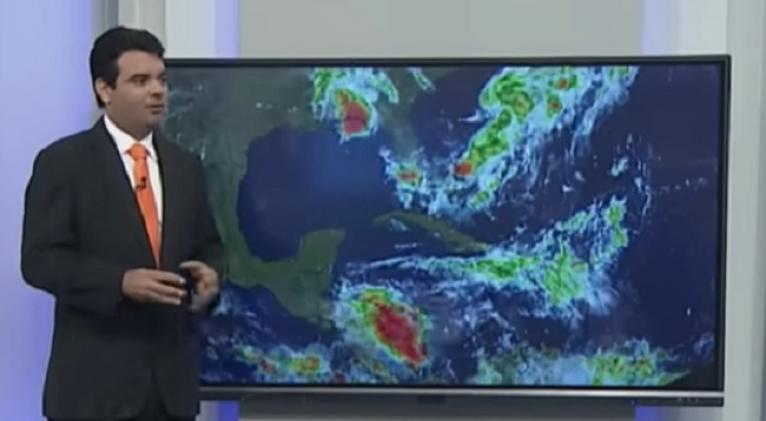Cuba: Neither A Heat Wave Nor Temperature Record
especiales

Master Elier Pila, from the Institute of Meteorology, clarified it on Sunday: Cubans are not experiencing a heat wave.
About the false alarms raised and running on social networks on this subject, the meteorologist explained on TV that, as his colleague Dr. Rubiera has already pointed out, this phenomenon is not characteristic of an island.
We are surrounded by sea, the breeze favors the warming to cool down and also rains can contribute to a drop in thermometers, he specified.
Although these days the trend towards heat continues, we have not even reached extreme heat, pointed out the specialist, who assured that "one cannot speak of record high temperatures this June."

We Cubans live under normal temperatures for this time of year, the reason why it feels so hot is due to the high humidity content, which increases the thermal sensation because it makes it difficult to sweat, which is the mechanism the body has for cooling down.
Where is the wave actually
The southeastern U.S. is experiencing a major heat wave that has triggered major storms, power outages and forest fires.
Dangerous and potentially record-breaking temperatures are forecast to continue through midweek in South Texas and much of the Gulf Coast. Storms with strong winds, hail and possibly tornadoes could hit lower Mississippi Valley, the AP reports.
Also in Mexico they suffer this heat wave that until last Sunday counted 9 deaths and several people remain in intensive care services.
This was reported by Telesur, specifying that temperatures in the Aztec country exceed 45 degrees Celsius.
This phenomenon, indicated the Mexican Red Cross via twitter, is due to the presence of an anticyclone at high levels of the atmosphere, which favors a very hot environment during the day in the northwest, north, northeast and west of Mexico.

It’s so hot in that Central American country that, for example, the Ministry of Education in the southern state of Chiapas decided to shorten school hours for basic education, while in Nuevo León parents have been left to decide if their children take classes face-to-face or online.
In other states, actions have been taken such as calling off outdoor activities when the temperature is equal to or greater than 45 degrees.
The world sweats
It’s not just a matter of the Americas, in the first 11 days of June global temperatures reached the highest level recorded for this time of year; it was reported by the European Union's Copernicus Climate Change Service.
The average air temperature on the planet's surface, in early June was the highest recorded and by a "substantial margin," Samantha Burgess, deputy director of the aforementioned organization, said in a statement.
For the first time, global surface air temperatures have exceeded the pre-industrial level by more than 1.5⁰C during the sixth month of this year, Copernicus records indicate.
Experts from this organization point out that such data is verified at the beginning of El Niño meteorological phenomenon, generally associated with an increase in the average temperature of the planet.
And June is not the only one with a heat record. According to the National Office of Oceanic and Atmospheric Administration of the United States, cited by Juventud Tecnica magazine, last month, Cuba and the world had its third warmest May in 174 years, while North America and South America in particular, lived the warmest May ever recorded.

This meteorological phenomenon is so brutal that last Thursday it was confirmed that the death of hundreds of birds on the Mexican Pacific coast was due to the warming of the waters of that ocean, due to the effects of El Niño.
Initially it was suspected that such numerous deaths were the result of a possible avian flu, but it was proven that the birds died of starvation, according to autopsies carried out by the Mexican Ministry of Agriculture.

As the shallower waters warm up due to El Niño, fish move deeper in search of cooler waters, making it impossible for birds such as seagulls and pelicans, among others, to catch them.
Translated by Amilkal Labañino / CubaSí Translation Staff














Add new comment